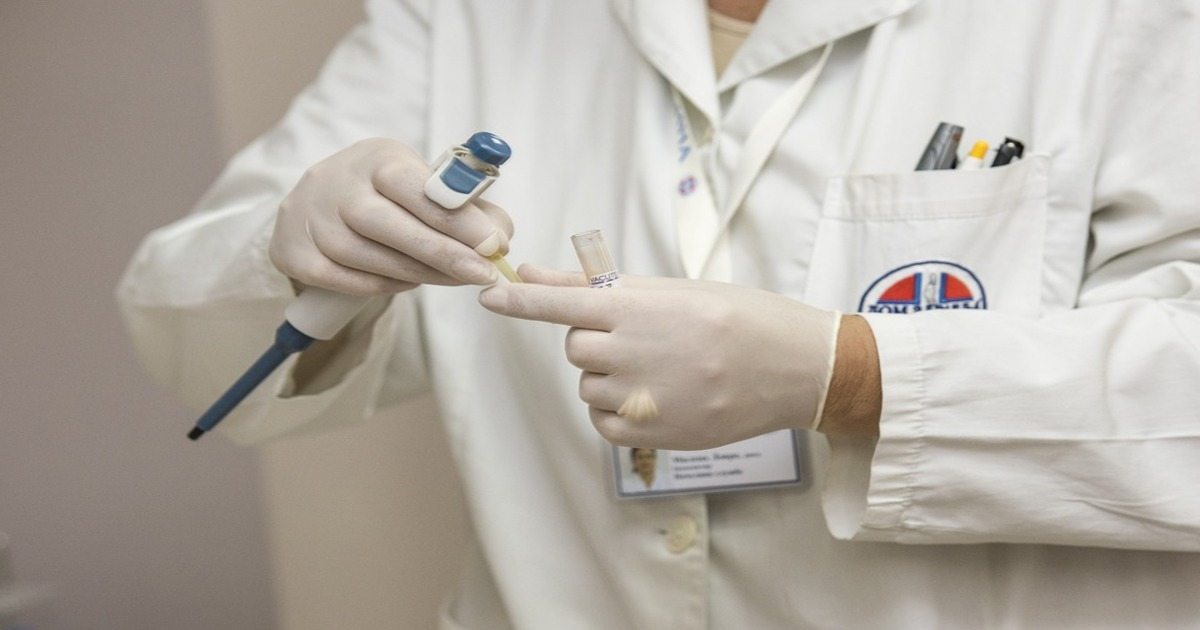Category: Mesothelioma

ASCO Offers Malignant Pleural Mesothelioma Treatment Guidelines
The American Society of Clinical Oncology (ASCO) is the world’s leading professional organization for medical professionals caring for cancer patients. The Society has a goal to improve the quality of care in the field of oncology. Now, to assist medical professionals managing patients with malignant pleural mesothelioma, the organization has just released new evidence-based recommendations.
In their newly released clinical practice guidelines, ASCO offers guidelines for diagnosis, staging, chemotherapy, surgical cytoreduction, radiation therapy, and multimodality therapy in malignant pleural mesothelioma (MPM) patients. According to the panel of experts, including Hedy L. Kindler, MD, of the University of Chicago, and Mary Hesdorffer, formerly the Executive Director of the Mesothelioma Applied Research Foundation, the recommendation addresses five “overarching clinical questions.”
- What is the optimal approach to obtain an accurate diagnosis of mesothelioma?
- What initial assessment is recommended before initiating any therapy for mesothelioma?
- What is the appropriate first- and second-line systemic treatment of patients with mesothelioma?
- What is the appropriate role of surgical cytoreduction in the management of mesothelioma?
- When should radiation be recommended for mesothelioma?
Pleural mesothelioma is a rare, painful cancer caused by exposure to airborne asbestos fibers. Treatments manage the symptoms to hold the cancer at bay, but there is no known cure for this deadly disease. Patients have a poor prognosis, and the median overall survival of patients with advanced surgically unresectable disease is about 12 months, according to ASCO. About 3,000 new cases are diagnosed each year in the U.S.
The ASCO team noted that “Given the rarity of this malignancy, there have been few large randomized trials, especially for surgical management of this disease.” Seeing a critical need to find and compile this information, ASCO convened a panel of experts, including thoracic, oncology and advocacy experts, to review medical literature published from 1990 through 2017 that included references to pertinent trials and studies.
Through the search of the literature, the team identified 222 relevant studies. After assessing the key areas of interest, including survival and quality of life, using evidence and informal consensus the team developed the evidence-based guideline recommendations.
The guidelines, published in the Journal of Clinical Oncology, include offering chemotherapy as a means for improving survival and quality of life for mesothelioma patients. The recommended first-line chemotherapy is pemetrexed plus platinum. However, the team recommends offering patients the option of enrolling in a clinical trial. Other chemotherapy recommendations include the addition of bevacizumab to pemetrexed-based chemotherapy for select patients, as well as pointing out risks for the use in some patients.
The panel “strongly recommends” a maximal surgical cytoreduction surgery for certain patients with early-stage disease. The recommendations note, however, that surgery is just one modality and chemotherapy and/or radiation should also be administered.
See the Journal of Clinical Oncology for all of the mesothelioma recommendations.
ASCO states that “clinical practice guidelines are intended to improve the quality of cancer care by helping oncologists make choices about treatment, prevention, supportive care, or follow-up in line with the best available evidence from oncology research.” ASCO notes that the guidelines are voluntary and do not account for variation among patients or the most recent evidence.
Sources:
- ASCO
https://www.asco.org/practice-guidelines/quality-guidelines/guidelines/thoracic-cancer#/29376 - Journal of Clinical Oncology
http://jco.ascopubs.org/content/early/2012/12/13/JCO.2012.44.6443.abstract

Breakthrough Blood Test May Extend Mesothelioma Survival
Just last week, MesotheliomaHelp reported on a corporate partnership for blood test tools that will bring improved results in the detection of key lung cancer mutations. Blood biopsies are shown to be fast and accurate, as well as less stressful on the patients. Now, in another breakthrough using liquid biopsies, researchers report success in the early detection of mesothelioma and screening for multiple cancers using one tool.
Researchers from Johns Hopkins University have developed the CancerSeek blood test that is able to screen for eight different types of cancers and can help pinpoint the location of the tumor. In a recent study of 1,005 cancer patients, the results had a “greater than 99 percent specificity for cancer,” according to a Jan. 19 press release from Johns Hopkins University.
[expert_info author=”Bert Vogelstein, Johns Hopkins University”]”This test represents the next step in changing the focus of cancer research from late-stage disease to early disease, which I believe will be critical to reducing cancer deaths in the long term.”[/expert_info]Although there are screening options for some cancers, such as breast and prostate, mesothelioma, and many other cancers, are diagnosed after the patient goes to a doctor exhibiting some of the signature symptoms of cancer: unexplained weight loss, extreme fatigue and a persistent cough. CancerSeek results had a sensitivity ranging from 69 percent to 98 percent in five cancers that do not currently have any screening test availables, including ovarian, pancreatic, and esophageal cancers.
The test, according to the researchers, looks at eight common cancer proteins and the presence of cancer gene mutations from DNA circulating in the blood. The team developed a “small yet robust panel” that could detect at least one mutation and not lead to false-positives. The test is used for cancer detection only, and does not detect specific biomarkers to drive treatment.
“The use of a combination of selected biomarkers for early detection has the potential to change the way we screen for cancer…,” says Nickolas Papadopoulos, senior author and professor of oncology and pathology at Johns Hopkins.
Pleural mesothelioma, a deadly cancer of the lungs caused by past exposure to asbestos, has a long incubation period where patients may not exhibit symptoms for decades after exposure. By then the disease is already at an advanced, incurable stage.
Early detection of cancer through screening reduces mortality from many cancers, including lung and colon, according to the National Cancer Society. When treating mesothelioma patients, the best outcome is achieved with early detection of the disease by increasing treatment options and improving the patients’ quality of life while battling the cancer.
The tests are still in the early stages of research and are not yet available; however, they may be helpful in diagnosing mesothelioma in the future. In fact, the team anticipates a relatively inexpensive test that may be conducted by a primary care provider.
Read the results of the study in the Jan. 18 issue of the journal Science.
http://science.sciencemag.org/content/357/6349/378

Turning Off Certain Enzymes Could Stop Mesothelioma Growth
Researchers realize that one of the best ways to fight cancer is to stop it from growing and metastasizing in the first place. However, finding the right way to do that is not easy. Now, researchers believe that by turning off certain enzymes they can stop cancer cells from dividing. This discovery may stop cancer in its tracks, and bring new treatments that could extend the lives of mesothelioma patients.
Researchers from Uppsala University, Karolinska Institutet, and the University of Oxford, began to look deeper into finding a way to switch off enzymes as a promising strategy to fight cancer. Tailored drugs are needed to shut down an individual enzyme, but before they could look at new therapies, they needed to better understand how cancer-fighting drugs get to their targets.
The team of scientists turned their focus deep into the cells to a cell membrane protein dehydroorotate dehydrogenase (DHODH), a key anticancer target known to play a role in cell proliferation, according to a Jan. 19 press release from Uppsala University. They conducted a series of tests to determine how lipids, or building blocks of the cell membrane, and drugs bind to the DHODH enzyme. By better understanding this mechanism, they can better understand how to drive drugs directly to the disease.
“To our surprise, we saw that one drug seemed to bind better to the enzyme when lipid-like molecules were present,” says assistant professor Michael Landreh, Karolinska Institutet. In addition, they found that a lipid present in the mitochondrial respiratory chain complex, or the cell’s energy source, binds to the enzyme. The researchers concluded that DHODH may “use special lipids to find its correct place on the membrane.”
Research suggests that tumor metastases are responsible for approximately 90% of all cancer-related deaths. Funding research to find ways to have drugs home in directly on the disease brings hope to every cancer patient. In the case of mesothelioma, an incurable, asbestos-caused cancer, that quickly spreads to other organs leaving patients with few treatment options, halting cancer growth could lead to extended survival. Survival is typically about one year.
“By studying the native structures and mechanisms for cancer targets, it may become possible to exploit their most distinct features to design new, more selective therapeutics,” says Sir David Lane, Karolinska Institutet.
To find out more about this research, read the full study in the Jan. 18 issue of Cell Chemical Biology.
http://www.cell.com/cell-chemical-biology/fulltext/S2451-9456(17)30461-0

Combination of Liquid Biopsy Tools Improves Results in Detecting Biomarkers, May Lead to Better Selection of Targeted Mesothelioma Treatments
Researchers continue to look for an effective tool that can be used for the early detection of cancer and to track the effectiveness of treatment. Now, one company reports that by pairing its liquid biopsy analyzer tool with another company’s genetic data analysis tool, the resulting tests proved to be nearly 100% accurate. This is another step in using blood tests to help guide personalized medicine for lung cancer and pleural mesothelioma patients.
In a press release prior to the Fifth AACR-IASLC International Joint Conference held earlier this month in San Diego, Biocept, Inc, reports when it paired the Target Selector ctDNA lung cancer assays with the Thermo Fisher QuantStudio5 (QS5) real-time PCR instrument results of the detection of key lung cancer mutations resulted in “more than 99% sensitivity and more than 99% specificity.”
“The ability to rapidly and accurately assess the molecular status of a patient’s tumor using a simple blood draw can be a critical factor in the selection of individualized targeted therapy,” said Biocept’s Senior Vice President and Senior Medical Director Veena Singh, MD. “Our tests can further provide for the monitoring of response to therapy over time without invasive tissue biopsies that can be difficult to perform in patients diagnosed with cancer.”
The tests targeted EGFR, KRAS and BRAF mutations that have been shown to be present in lung cancer and in some pleural mesothelioma tumors as well. According to some reports, mutations of the KRAS gene (Kirsten rat sarcoma viral oncogene homolog) are found in 20 to 25 percent of lung cancers. The EGFR gene is overexpressed in more than 50% of pleural mesothelioma patients, and in approximately 15% of lung cancer patients, and is one of the primary targets for bringing personalized care to cancer patients.
With the advent of personalized therapies that target specific biomarkers, ensuring that effective tools are available to quickly and easily identify treatable mesothelioma markers is critical. Personalized cancer treatment optimizes the potential for success.
Often, lung cancer and mesothelioma patients must undergo invasive and painful biopsies to extract diseased tissue for diagnosis. Tissue biopsy tests can take up to 10 days to get a result leaving patients worried and missing out on treatment. However, with just a blood sample, this partnership could bring effective treatments to cancer patients in a shorter time.
Pleural mesothelioma, caused by exposure to airborne asbestos fibers, is an incurable cancer involving the lining of the lung. Nearly 3,000 Americans are diagnosed with mesothelioma each year. There is no cure for the cancer.

Mesothelioma Drug Given Promising Innovative Medicine Status in the UK
Boehringer Ingelheim has announced that the UK is following in the footsteps of the U.S. in the latest designation for the company’s drug nintedanib. In December 2016, the U.S. Food and Drug Administration granted orphan drug designation to the investigational cancer drug for the treatment of mesothelioma. Now, the UK Medicine and Healthcare Products Regulatory Agency has designated nintedanib a Promising Innovative Medicine for the treatment of malignant pleural mesothelioma.
The PIM designation, according to Gov.UK, is an indication that the product may be eligible for the early access to medicines scheme (EAMS) that brings medicines to patients with life threatening conditions when there is an unmet medical need. The designation was assigned based on the encouraging results of the phase II/III LUME-Meso trial, according to a Jan. 4 PharmaTimes article.
“This is fantastic news and the right decision taking into account the risk/benefit profile of nintedanib from a very credible Phase II trial,” said Professor Dean Fennell, Chair of Thoracic Medical Oncology at the University of Leicester and University Hospitals of Leicester NHS Trust, UK, commenting on the decision.
Results from the LUME-Meso Trial showed “statistically significant improvements,” according to Pharma Times, with mesothelioma patients treated with the drug plus chemotherapy achieving 9.4 months of progression free survival compared to 4.7 months for those patients receiving chemotherapy alone.
Nearly 2,500 cases of pleural mesothelioma are diagnosed each year in the UK. With limited effective treatment options the median survival is less than 14 months. Reports indicate that nearly 3,000 Americans are also diagnosed with the deadly cancer each year. New, effective treatments are critically important to improve mesothelioma patient survival.
To find out more about the LUME-Meso trial, see ClinicalTrials.gov.
https://clinicaltrials.gov/ct2/results?term=%22malignant+mesothelioma%22&recr=Open&pg=1
Sources :
- U.S. Food and Drug Administration
http://www.mercknewsroom.com/news-release/oncology-newsroom/merck-announces-fda-acceptance-review-mk-3475-biologics-license-appli - Gov.UK
https://www.gov.uk/government/news/medical-innovation-doctors-and-patients-encouraged-to-give-views - PharmaTimes
http://www.pharmatimes.com/news/pim_status_for_boehringers_mesothelioma_drug_1215220
Free Mesothelioma Patient & Treatment Guide
We’d like to offer you our in-depth guide, “A Patient’s Guide to Mesothelioma,” absolutely free of charge.
It contains a wealth of information and resources to help you better understand the condition, choose (and afford) appropriate treatment, and exercise your legal right to compensation.
Download Now